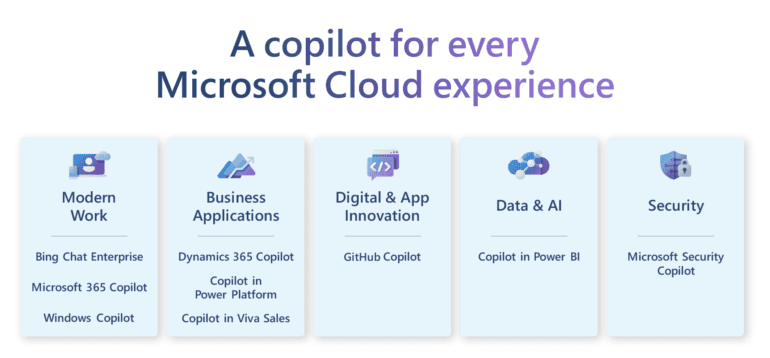TL;DR:
- Microsoft introduces Copilot Copyright Commitment to safeguard customers from AI-generated copyright disputes.
- Concerns persist over AI-generated content and copyright laws’ intersection.
- Microsoft promises legal protection for commercial customers facing third-party copyright infringement lawsuits.
- Customers must follow Microsoft’s guardrails and content filters to qualify for legal defense.
- The commitment reflects Microsoft’s commitment to authors’ rights and a competitive AI environment.
- Microsoft emphasizes responsible use of copilot services and disclaims IP rights over copilot outputs.
Main AI News:
In the fast-evolving landscape of AI-driven technologies, Microsoft is taking proactive steps to alleviate the concerns of its customers. With the ever-increasing usage of AI-powered tools like GitHub Copilot and Microsoft 365 Copilot, questions surrounding copyright infringement have loomed large. In response, Microsoft has introduced the Copilot Copyright Commitment, a robust initiative aimed at protecting its valued customers from potential legal entanglements.
While Microsoft’s copilots have undeniably transformed various tasks, from coding to data analysis, concerns regarding intellectual property (IP) infringement have persisted. Businesses, artists, and authors have been grappling with the intricate intersection of AI-generated content and existing copyright laws, resulting in a cloud of uncertainty for commercial users.
To address these growing apprehensions, Microsoft’s Copilot Copyright Commitment offers a shield of legal protection to its commercial clientele facing third-party copyright infringement lawsuits. The condition is simple: customers must adhere to Microsoft’s established guardrails and content filters. If a customer is sued for copyright infringement stemming from their use of a Microsoft Copilot service or the content it generates, Microsoft will step in, providing legal defense and covering any resultant settlements or adverse judgments. This commitment seamlessly extends Microsoft’s existing intellectual property indemnification policies.
Importantly, this pledge underscores Microsoft’s commitment to authors’ rights and broader public policy concerns. In its pursuit of harnessing the potential of generative AI to address societal challenges, Microsoft recognizes the paramount importance of preserving authors’ rights to control and monetize their creations. This ensures that no single entity monopolizes the content that fuels AI models, thereby fostering a competitive and innovative environment.
However, this protection comes with a caveat. Customers are required to utilize the safety features integrated into copilot services and refrain from intentionally generating infringing materials. Microsoft reiterates that it does not lay claim to intellectual property rights over copilot-generated outputs.
Microsoft positions this pledge as a vital initial step in navigating the complex legal terrain raised by AI technology. It exemplifies the delicate balance between encouraging innovation and safeguarding creative works. The company plans to engage in further collaboration with stakeholders, aiming to advance AI knowledge while upholding the rights of creators.
Conclusion:
Microsoft’s Copilot Copyright Commitment demonstrates the company’s dedication to addressing customer concerns in the ever-evolving AI landscape. This move underscores the importance of balancing innovation and creative integrity while providing a potential blueprint for businesses navigating AI and copyright law. It offers a reassuring message to the market, signaling that responsible AI usage can coexist with legal protection, fostering a climate of innovation and compliance.

